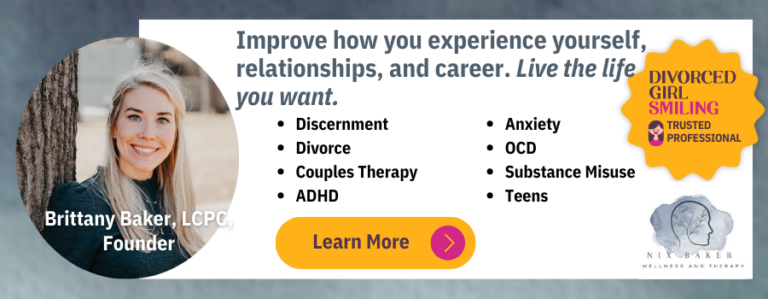Jackie, is my spouse an alcoholic? My husband of 11 years(and father of my two kids) has been drinking much more than he used to. In fact, he now drinks at least a 6 pack of beer every night, or sometimes a bottle of wine. I keep finding empty booze bottles around, and our trash can looks like we just had a party. I asked him if he’d try to drink less, because it is expensive, he is gaining weight, and it’s not healthy. He yelled at me and told me it was none of my business. I’m worried.
This is a difficult question to answer. Picture this. You’re out at a bar where everyone is drinking and seems to be having fun, many people even tipsy. If someone told you there were three people in the crowd who are diagnosed alcoholics, could you step back, look around, and pick them out? Of course not.
On the surface, it’s very difficult to distinguish an alcoholic from a social drinker. A really really drunk girl could be someone who rarely drinks, but just felt like getting drunk that night. Someone who seems very much in control could have already had 8 drinks and does that every night.
Spotting an alcoholic can be just as difficult when it comes to you or your spouse. Why? Because I think that many times, a person knows he or she has a problem, or that his or her spouse has one, but doesn’t want to see it. They don’t want to admit the problem or talk to their spouse for many different reasons.
They might be scared. They might not want to cause waves in the family. Or, they don’t have the first clue as to where to begin to reach out for help. So, they push the problem aside. After all, the spouse is keeping his/her job, right? “He/she is fine. It’s just a phase,” they might rationalize.
Then, one night, things get really out of control. Their spouse punches a hole through the wall, or falls down the stairs, or becomes angry and abusive. The next day, the person confronts him/her. He or she gets really angry, and tells the person “I do not have a drinking problem, it’s all in your head, you are being dramatic.”
So, what do you do? Ignore it and hope it gets better? Here’s a fact:
Alcohol addiction or abuse only gets worse over time. And, without professional help, it never ever get better.
I am not a therapist, and am not certified in alcohol addiction, but I speak from what I’ve seen, what I’ve experienced, and the therapists I’ve interviewed on the subject. I can offer advice on “Is my spouse an alcoholic” based on that.
Here are signs (in my opinion) that you or your spouse’s drinking is out of control and that you should consider getting help.
1. You hide your alcohol, so no one sees. Or your spouse does.
2. You get angry and defensive when your spouse tries to talk to you about drinking.
3. You make plans around drinking. In other words, it is your first thought when deciding what you are doing for the day. For example, you might choose to go to a White Sox game instead of a movie because you are thinking you can drink there.
4. You are edgy and tired and moody in the morning and you are looking forward to 5pm so you can have a drink to feel better.
5. You quit for a couple weeks to prove to your spouse and yourself that you are capable of it, but one night you say, “I’ll just have one beer.” By the end of the week you are drinking just as you did prior to last week or maybe even more.
6. Your performance at work starts to suffer.
7. Your sleep suffers.
I once covered an event for Sun-Times Media local where well-known TV news anchor and reporter, Mark Suppelsa talked about his alcohol addiction. It was beautiful and inspiring to see someone have the self-awareness to get help and remain sober for so long. That takes guts. When I left there, I felt happy and hopeful for people with the disease, because it made me realize that it can be managed.
If someone tells you he or she thinks you have a problem with alcohol control, it is almost always 100% a sure thing that you do. You just can’t or don’t want to see it. Not wanting to see it is part of the disease.
I will end this post with an interesting comparison. I know two men who basically admitted they were alcoholics right around the same time (2 years or so ago.) Both entered a program and both left sober and hopeful that they were facing a new, better life.
One guy is still sober and speaks on the subject frequently. He actually just went to a fraternity reunion at his old school where a dozen of his brothers drank beer all weekend. He drank non-alcoholic beer and said he had a great time. He just met a girl and is falling in love.
The other guy decided two weeks after the treatment program that he was fooled into being told he was an alcoholic, and that he had no such problem. He began drinking again. His wife left him, he has lost his job, and he still drinks.
Every situation is different, but I truly believe alcohol addiction or abuse has serious negative effects not just on relationships, but on your life, if ignored.
If you are wondering, “Is my spouse an alcoholic?”, or if you think you might be, please please get help. I know it isn’t easy. It might be the most difficult thing you have ever done. But getting help will prove to be worth it in the end.
Below are three resources to give you a place to start.
























Watching a partner slowly falling into a pattern of alcohol dependence can be a terrible experience. As you say Jackie, the sooner you can address the issue and start trying to help your partner through any issues they might have the better. As you so rightly say, these things only get worse as time runs on.
Al-Anon is like a sister organization to AA. It is anonymous and you can go to a meeting without setting an appointment or even talking. You will be in a community of people (all ages, backgrounds, etc) who face the same serious issue that you confront: that someone you love has an addiction and you need help (emotional support, true stories of other people in your exact same situation and what they did). The power of being part of a group in which each person is facing (or has faced) the same situation is quite therapeutic and a wonderful source of information and support. I don’t want to speak for you, but the fact that you wrote about your concerns suggests that you already believe he is an alcoholic. Addiction is a disease, not an issue of will power or poor character trait, and it is progressive — it always gets worse over time. “Active” addicts (those not seeking or in recovery) will always deny that they have a problem. Denial is a core part of the disease. And this disease creates serious problems for loved ones. Those people who choose to believe that their loved one doesn’t really have a problem become co-dependents and allow the person emotionally dependent on alcohol or other drugs to get worse. The disease of addiction has no real cure, but many people are able to recover, mostly with the very active support of family members who insist that the person get help. Left untreated, addiction leads to death or incarceration and wreaks emotional and other devastation to those close to the active addict. Remember, this is a disease. If you thought he had cancer, would you allow him to leave it untreated? Would you watch him just slowly die? Left untreated, the disease of addiction will lead to the same place for him while you suffer substantial emotional, financial and sometimes physical problems that can deeply scar you.
My wife is an alcoholic and denies she has a drinking problem. Our daughter who I’m very close to and I’ve virtually had to raise myself playing both roles many times. She has just started university doing a Law degree and swears she will never drink. My son who I’m also close to and proud of has just finished his Law degree did drink rarely and now no longer drinks. My wife stays up all night drinking and is an obnoxious drunk that becomes abusive and plays the victim if you mention her drinking. My children have and still beg me not to leave as they are frienghten that she may do something stupid which I’m sure is correct. She tells my children regularly that she has not got anything out of our 28 year marriage and that I’m cheating on her with other mothers from my daughter’s sports teams which is completely untrue. Holding down a shift workers job and raising two children would give me no time to cheat on my wife even if I wanted to. I have retired recently and I’m fortunate enough to live on a very generous pension for the rest of my life. My wife seems to take everything for granted and complains about money issues which are completely unfounded. We own a beautiful home and have no debts, we have two wonderful children living at home that I’m very proud of and are doing well with their studies. Sadly my wife looks at life through the bottom of a wine glass and none of these things are good enough. I know this sounds like a cop out but I almost certain if I did leave and start a new life my children would want to come with me which is fine. This would leave my depressed alcoholic wife who has not worked for years and has no friends all alone. The consequences would of me moving on would end in tragedy. Alcoholism is all what it is cracked up to be, a sinister disease that not only destroys their own lives but makes life difficult for those around them.
You have obviously done an amazing job as a father and it’s your turn to be happy! Go and enjoy your retirement and if she doesn’t want to fix herself then you enjoy it it without her.
In my experience, the number one thing alcoholics have in common is the inability to stop once they start. After the first drink, a switch is flipped that is almost impossible to turn off without help. People like to argue whether that “switch” is physical, spiritual, or a mental problem. In my opinion, it is probably a combination of all three.
This article is extremely old. Though the topic is not.
In Alanon we keep the focus on ourselves instead of the alcoholic.
Alanon is a great resource.
It’s not about fixing the problem, it’s about helping ourselves try to navigate and live in the situation.